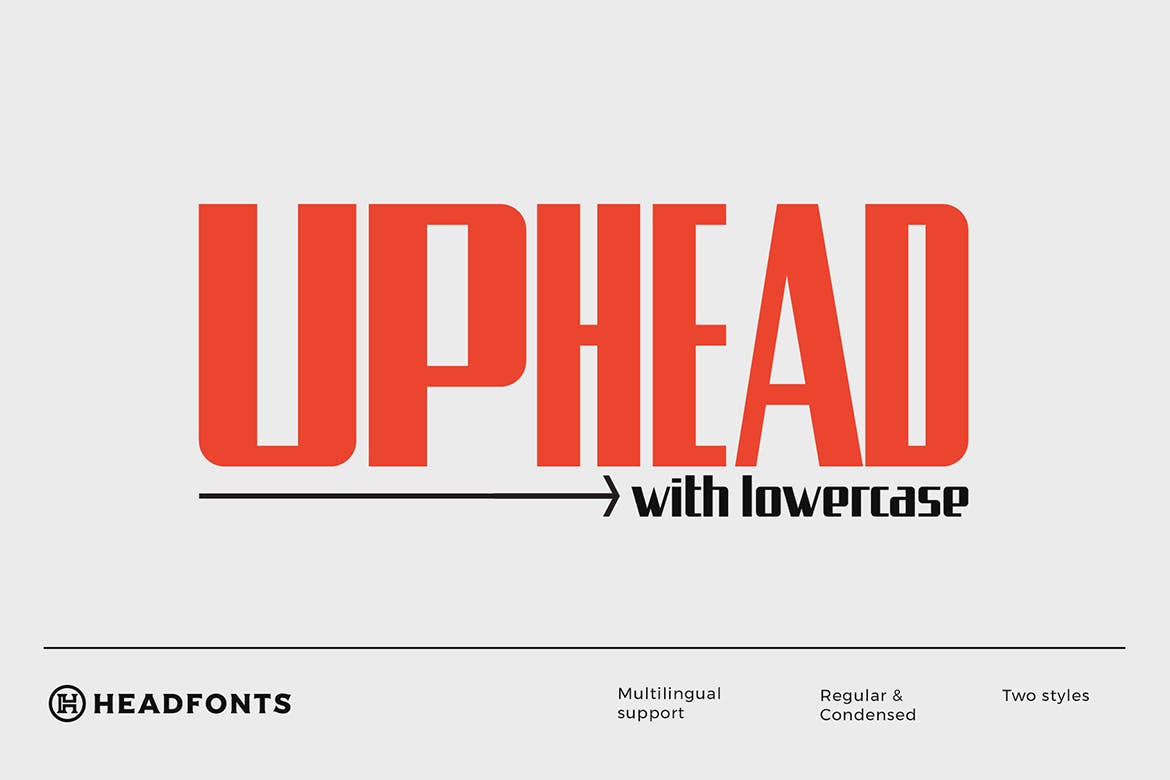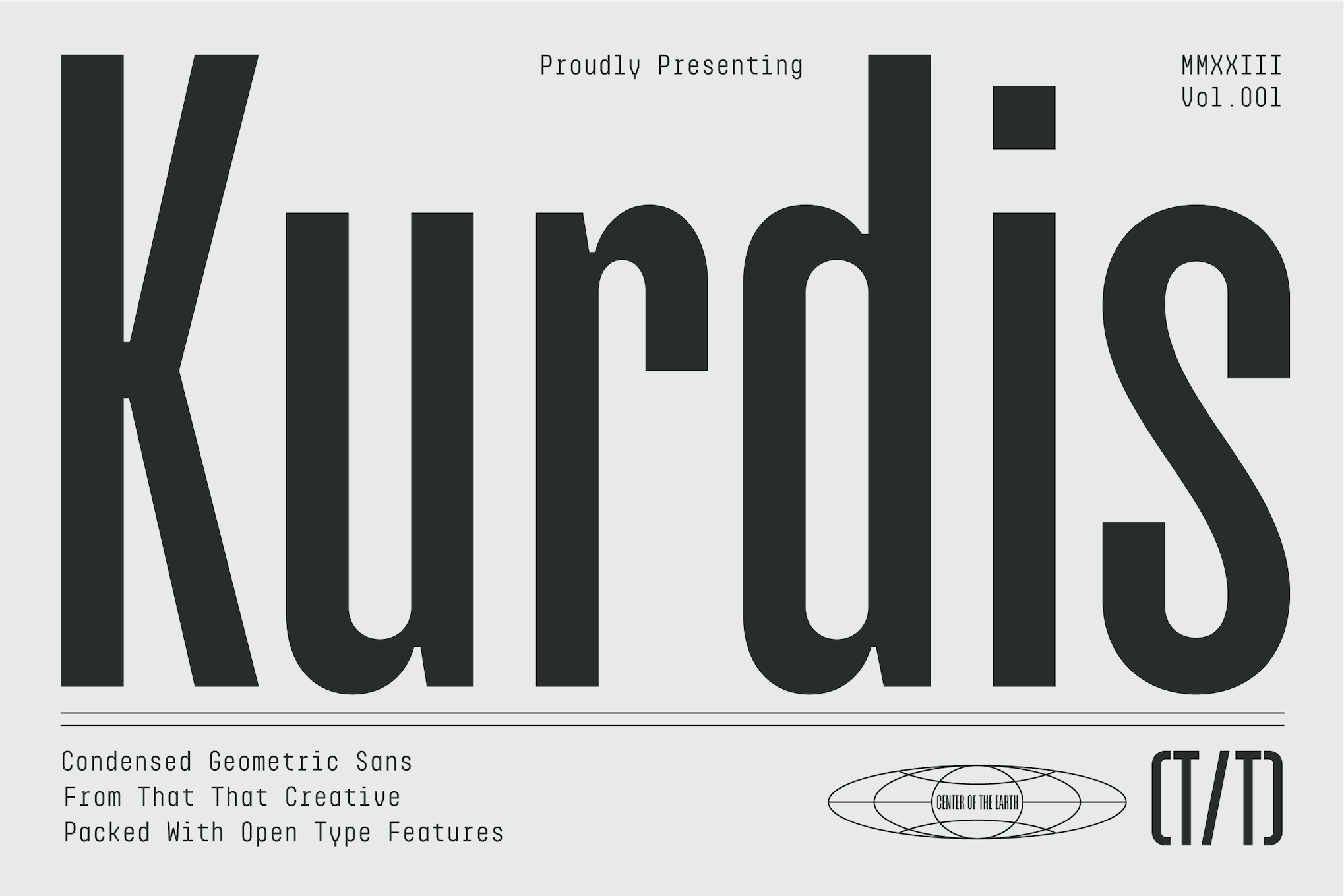20+ Best Fonts Similar to Impact
Impact is a typeface that has consistently remained a favorite choice among designers and typographers for its heavy, bold aesthetic. Often used in headlines to command attention, designers frequently search for fonts similar to Impact just to match its iconic look.
In this collection, we look at some of the best fonts similar to Impact. Each font on the list features its own distinctive style while reflecting a vivid echo of the Impact font. There are both premium and free font options for you to choose from.
We focused on fonts with affordable licensing. Unlike the original Impact font, you can download all of the premium fonts on our list with a single affordable subscription, thanks to Envato Elements. Have a look and download them all.
2 Million+ Fonts, Typefaces, and Design Resources With Unlimited Downloads
Download thousands of stunning premium fonts and typefaces with an Envato Elements membership. It starts at $16 per month, and gives you unlimited access to a growing library of over 2,000,000 fonts, design templates, themes, photos, and more.
Devant Horgen
Devant Horgen is a contemporary sans serif font similar to Impact, well-suited for big banners, film posters, headlines, and logo designs. This updated typeface features new glyphs, two distinct styles, upper and lowercase glyphs, and accommodates multiple languages. The pack includes OTF, TTF, and web fonts, ensuring versatility.
Brigadier Sans
Brigadier Sans is a sleek, tall sans serif typeface reminiscent of Impact. Its modern, authoritative appearance makes it ideal for brand logos or headlining material. The Brigadier Sans package comes with OTF, TTF, and web fonts (WOFF & WOFF2), delivering versatility across platforms and projects.
Highman
Highman is a compelling condensed display font offering an impactful alternative to Impact. Its unique trait is the noticeable height difference between the uppercase and lowercase letters, all in caps. Perfect for adding a bold statement to titling, headers, and grid layouts, Highman is sure to make your display texts stand out uniquely.
Uphead
Inspired by Eastern European street signs, Uphead is a unique sans serif industrial-style font with a balance of sharp lines and smooth curves. It offers two distinct styles, Uphead Regular and Uphead Condensed, fitting for industrial logo designs, headers, and text. Uphead also comes with extensive Latin script language support, upper and lowercase characters, and punctuation, making it a versatile and modern creative asset.
Roginds
Roginds is a visually eloquent, modern, bold font, echoing the design aesthetic of Impact. Its versatility shines across all sizes, making it a perfect fit for numerous projects: from branding, invitations, and logos to editorial design, and much more. Appreciated across various business sectors, Roginds also supports multiple languages and includes OTF and TTF formats for enhanced user convenience.
Rockids
Rockids Sharp is a brave and bold display typeface that’s perfect for making a statement. Bearing a resemblance to Impact, its robust characters are excellent for headlines, game branding, movie titles, or posters.
NorthBay Grotesk
NorthBay Grotesk is a unique Impact font alternative with a grotesk design, perfect for a wide range of projects including branding, logos, titles and headlines. It’s a versatile font with five distinctive weights – light, regular, medium, semi-bold, and bold – and a range of features including numerals, extended punctuation, basic symbols, and more.
Prodencial
Prodencial is a versatile, modern grotesk font with smooth curves, adding charm and elegance to any project. It’s perfectly suited for headlines, logos, branding, or any creative output, from magazines to product packaging. The font comes in both uppercase and lowercase, and includes punctuation, numbers, symbols, and multilingual support.
Handstood Ultra Black
Take your designs to the next level with Handstood Ultra Black, a modern typeface with an Impact-inspired design. This font features geometric letter shapes and no descenders, providing a unique visual appeal. Packed with tight kerning, it boosts the sophistication of any project like branding or editorial headlines.
Helotypo
Helotypo is a clean, condensed Sans Serif font similar to Impact. Perfect for product logos, headlines, web designs, magazine layouts, and more, it also features a broad selection of unique alternative letters and easy-to-use ligatures.
Yanice
Yanice is a semi-condensed, sans serif font, boasting both strength and subtlety. Ideal for contemporary and industrial design themes, this versatile font provides four distinct styles. It includes not only standard ligatures, but also multilingual support and symbols and punctuation.
Heco
Heco is a delightful alternative to the Impact font, boasting a modern, sans serif design. With smooth curves and elegant ligatures, it’s a versatile choice for projects big or small. Perfect for headlines, logos, branding, or print, Heco includes upper and lowercase letters, punctuation, numbers, symbols, and multilingual support.
Bonnaco
Bonnaco is a new and vibrant font that combines bold authenticity with a sleek, modern design similar to Impact. Ideal for various branding projects like logos or template designs, it’s versatile enough to stand out in diverse contexts. Bonnaco font comes in both regular and condensed styles, available in uppercase, lowercase, multilingual formats, and downloadable in both otf and ttf.
Forsakken
Forsakken is a clean and modern font inspired by the likes of the Impact typeface. Perfectly suited for creating engaging posters, stylizing social media posts, branding, or personal projects, it lends a contemporary aesthetic to your designs. The downloadable files include both regular and italic styles, in OTF and TTF formats.
Kurdis
Kurdis is a captivating, ultra-condensed display font ideal for creating remarkable titles, logos, posters, and branding. This modern geometric font, akin to Impact, features upper and lower case, numbers, symbols, and even arrows. It also supports over 120 languages. With its bold characters that grab attention from afar and meticulous details, Kurdis adds a unique charm to any design.
Singa
The Singa font, similar in style to the classic Impact font, exudes simplicity, power, and elegance. Perfect for headlines, posters, branding, or titles, it offers a clean San serif design with both uppercase and lowercase characters. Also included are 11 Stylistic alternate characters and support for multiple languages and punctuation, making Singa a versatile choice for any graphic design project.
Endoka
Endoka is a dynamic, clean title font reminiscent of the Impact font’s design. Excellently adaptable, it’s suitable for a variety of purposes – from branding and logos to magazines, banners, and t-shirts. It comes in OTF and TTF files, features both uppercase and lowercase letters, numbers and punctuation.
Free Fonts Similar To Impact
These free fonts are also great Impact alternatives.
Anton
Anton is one of the best free alternatives you could find for Impact. It features a tall and narrow letter design that’s quite similar to Impact and it works perfectly for crafting impactful titles and headigns. Since this font comes from Google Fonts, you can even use it for commercial projects.
Calcio
Calcio has an ultra-condensed design and letters similar to Impact but it also infuses its own unique design elements to the typeface. It’s ideal for logos and packaging designs. The font is free for personal use.
Calama
Calama is another free font that looks similar to Impact. It also has a narrow letter design but with a slightly rounded look. This font is perfect for designing blog headers and social media posts. And it’s free to use with commercial projects.
Wild West
This font is ideal for projects that require a more unique look but with a condensed letter design. Wild West has many similarities to the Impact font but it also stands out from the crowd. It’s free for personal use.
Garibaldi
You can download this font to craft attention-grabbing titles for your posters, websites, and social media posts. It has a letter design very similar to Impact and comes with a free personal use license.



























